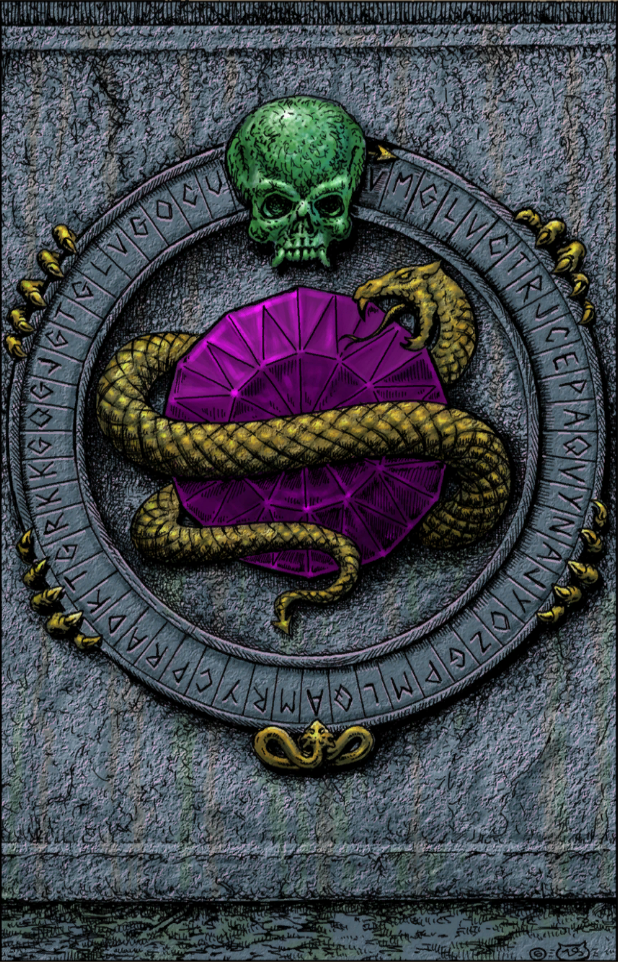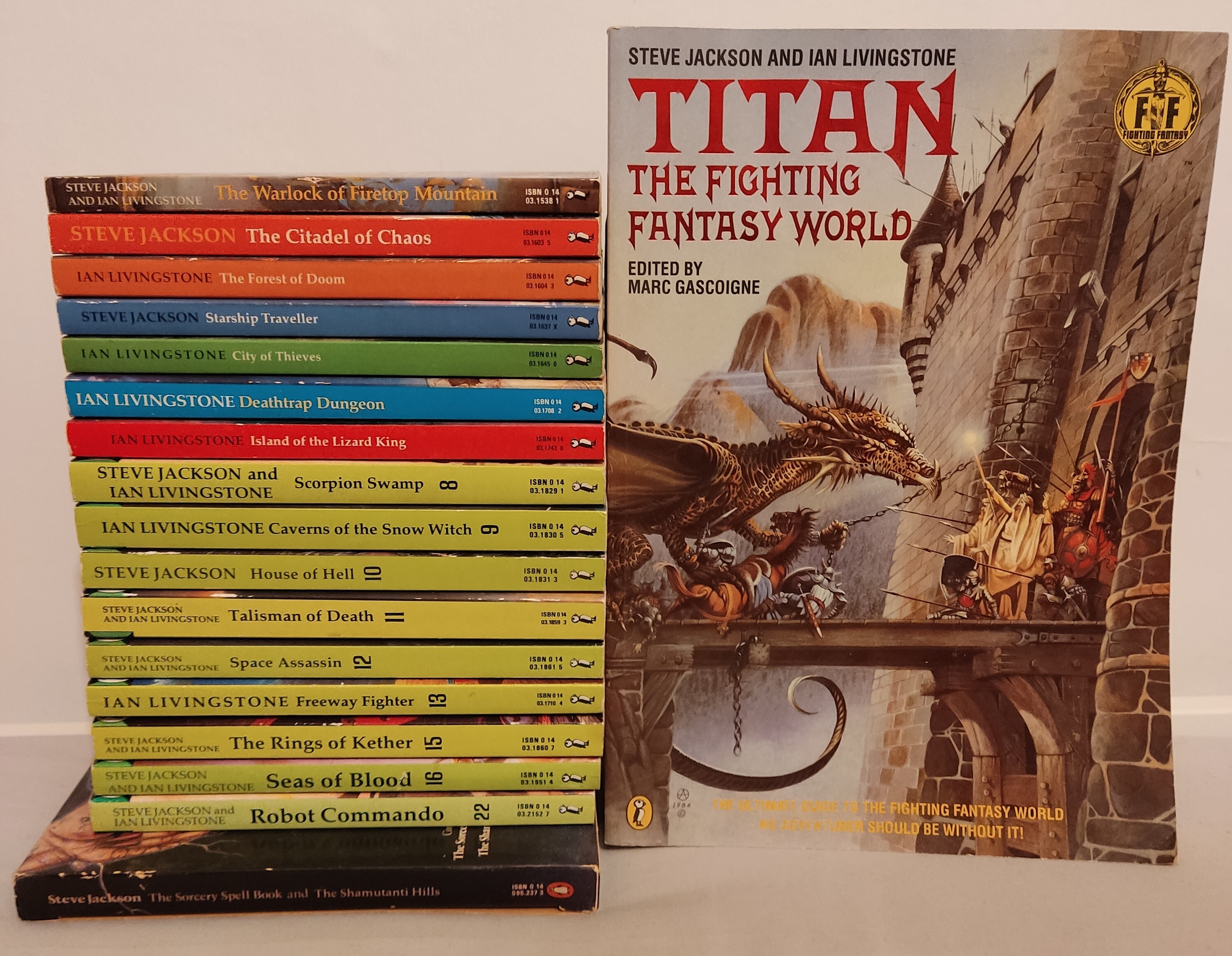“We used to run Games Days in the early days,” he says. “By 1979, other traders were coming in… so we had several thousand people turning up to play games. Penguin took a stand to promote their book, Playing Politics. The editor, Geraldine Cook, was just fascinated by the enthusiasm of the people playing Dungeons & Dragons. She said to Steve and me, ‘Have you ever considered writing a book about the whole role-playing hobby?’
“We said, off the cuff, ‘Rather than write a book about the hobby… could we write something that lets people actually experience the hobby?’ And we sent her the concept of a stripped down role-playing game, with the book itself replacing the Dungeon Master, offering the reader multiple choices. But we didn’t want it to be just about choosing paragraphs, we wanted a dice-based game system. So we came up with SKILL, STAMINA and LUCK, trying to keep things as light as possible so people weren’t bogged down with the complexity of the game. Geraldine was massively enthusiastic, but apparently the head of Penguin Books laughed so much he banged his head on the table. He thought it was a ridiculous idea – why would anyone want an interactive book? Books are linear, end of story. It took at least another year before anyone said ‘OK, let’s do this…’
...
By Spring 1983, the duo were spearheading a literary revolution. Role-playing games, once the esoteric interest of a whiskery minority, had become a national obsession for a generation of youngsters. After that slowburning start, those first three Fighting Fantasy books – incredibly – toppled the previously unassailable Roald Dahl to occupy the top three positions of the Sunday Times’ children’s bestsellers list. TV appearances followed: Ian recalls appearing on BBC1’s monolithic children’s programme Saturday Superstore, where a bemused John Craven asked if the duo planned to ever write a “proper book”.
...
The immersive nature of the books, however, brought an unexpectedly dark twist.
The rumblings began in local newspapers, with the front page of the Reading Evening Post from 6th March 1985 making for fascinatingly lurid reading. “Mother calls for ban on ‘devil worship’ books in schools,” screamed the headline. “The 23-year-old Sunninghill mother, who wants to remain anonymous, believes they are unsuitable material for children and has burned the Fighting Fantasy adventure books. She is prepared to put up a fight to get the books banned, and is planning a petition. She said other mums were also concerned about the books, which she said describe devil worship, witchcraft and voodoo. She claimed that her son, aged 11, came out in pinprick marks after reading them. Mr Nicholas Holmes-Clough, minister of Bracknell Pentecostal Church, told his congregation on Sunday: ‘Anything of the occult is evil. We want to keep it well away from our children’.”
A week later, Holmes-Clough had stepped up his efforts, claming to have delivered a petition to 10 Downing Street. “I’ve had lots of phone calls from parents, saying how their children had been mentally affected by such books,” he told the paper. “Children go back to bed-wetting and start having nightmares at the age of nine or 10…”
Nevertheless, by 1986, the campaign had escalated. Steve Jackson’s House of Hell, a Hammer-inspired quest to survive the night in a Borley Rectory-style haunted mansion, proved a tipping point. With its uncharacteristic modern-day setting, it brought Fighting Fantasy’s Devil-worshippers and psychopathic Skeletons closer to the real world than ever before. For some, that was a step too far. “OCCULT BOOK BANNED” blared the front page of the Burton Mail on 9th October 1986. “A ‘nasty’ children’s fantasy book which dabbles in the occult has been banned from library shelves. Church officials say Steve Jackson’s House of Hell is dangerous to children because of its supernatural contents and pictures. Now the book has prompted Leicestershire library chiefs to review the way they select children’s material…”
By December, one particular Christian group had gone into overdrive, publishing a newsletter entitled Danger – Children At Play and warning of the dangers of what they called “video nasties in print”.


